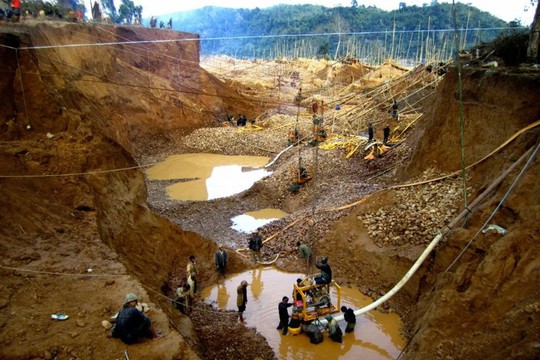Niger. Gold mine in Zamfara
Photo: ICIR, premiumtimesng.com
Niger’s government has announced the nationalisation of the country’s sole industrial gold mine, accusing its Australian operator of “serious breaches” as the junta seeks greater control of natural resources, AFP reports.
The government of Niger has announced the nationalization of the Societe des Mines du Liptako (SML) gold mine, formerly controlled by Australian company McKinel Resources Limited.
President Abdourahmane Tchiani said in an official statement cited by AFP. Authorities said the move responds to "serious breaches" and is intended to rescue what they called a strategically important enterprise.
The military junta has ruled the West African nation since seizing power in a 2023 coup, promising to crack down on Niger’s myriad security issues.
Niger’s government said since McKinel’s takeover of SML, the mine has fallen into an “alarming economic situation”.
It criticised the Australian firm for failing to implement a US$10 million investment plan which the government said has led to tax and wage arrears, worker layoffs and “significant increased debt”, as well as production stoppages.
Niger’s mines minister has said the country also wants to cooperate with Moscow to develop its uranium reserves, RT reports.
Niger has announced plans to build two nuclear reactors in partnership with Russian state energy corporation Rosatom, a project its mines minister said is “very important” for the entire African continent.
Recently speaking at the Global Atomic Forum in Moscow, Niger’s mines minister Ousmane Abarchi said the proposed plants – with a total capacity of 2,000 megawatts – would be developed under the supervision of the UN nuclear regulator, the International Atomic Energy Agency.
“Yes, we have big ambitions,” he told the gathering, while also proposing cooperation with Russia to develop the West African country’s uranium reserves.
“I am convinced that developing uranium deposits is a responsibility to the world... We would like to develop this cooperation with the Russia,” the minister said.
Niger is the world’s eighth-largest producer of uranium, accounting for about 5% of global output from some of Africa’s highest-grade ores, according to recent World Nuclear Association rankings.
The country supplied more than a quarter of the European Union’s needs in 2022, Euratom data show, including nearly 1.9 million kg shipped to France. The exports are a key source of fuel for France’s nuclear reactors, meeting about 15% to 17% of the uranium used in its electricity generation.
However, since coming to power in a July 2023 coup, Niger’s military authorities have taken steps they say are meant to reinforce sovereignty and speed up the country’s drive for energy independence. In June, Niamey nationalized Somair, a uranium venture operated by French state-owned nuclear fuel company Orano since 1971. The government said the move would ensure healthier, more sustainable management of the company and allow Nigeriens to benefit more fully from the country’s mineral wealth.
Niger’s mines minister said that Niamey wants its “global technological partners, first and foremost Rosatom,” to help develop new mining projects based on “innovation, transparency and longevity.”
Rosatom chief Aleksey Likhachev reportedly described the Nigerien proposals as “extremely interesting.”
Earlier in July, Russia and Niger formalized plans to cooperate on the peaceful use of nuclear energy, including construction of a power-generation facility in the Sahel state, where nearly 80% of the population lacks access to electricity.
read more in our Telegram-channel https://t.me/The_International_Affairs

 9:35 02.10.2025 •
9:35 02.10.2025 •























